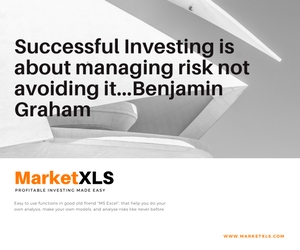These are dark days for biotech pioneers who dream of curing Alzheimer’s. The last few weeks have brought two fresh failures. Neurotrope ($NTRP) announced that it’s novel agent Bryostatin-1, which had shown promise in earlier clinical trials, missed ALL of it’s endpoints in a confirmatory phase II trial. The stock lost 90% of it’s value instantly. Separately, Biogen and Essai ($BIIB & $ESALY) announced that they are shelving yet ANOTHER Alzheimer’s agent, the duo’s second crushing defeat in 2019.
Perhaps the most devastating element of these failures is the fact that these drugs all represented different approaches to curing or stopping Alzheimer’s. In other words, it wasn’t just one method of action that failed, it was at least two different methods of action that seem like dead ends.
But it’s hard to crush the Entrepreneurial Spirit.Several brave biotech outfits continue to solider on, even with the odds against them. Below find four bold biotechs risking everything to cure Alzheimer’s…
1. AC Immune ($ACIU)
Researchers at $ACIU believe that the the most promising therapeutic targets are the misfolded brain proteins that many scientists associate with Alzheimer’s symptoms. Simply put, these proteins are the basic building blocks of brain function; however, when these proteins become impaired, they evade the immune system because they are not foreign bodies. Rather than being cleared away by the immune system, this “brain junk” just builds up, triggering the downward spiral that is Alzheimer’s.
In order to build tools to attack these misfolded proteins, AC Immune has developed to proprietary technological platforms, going by the names of SuperAntigen and Morphomer. These platforms have already developed as many as eight molecule candidates across a wide range of approaches (vaccines, novel antibodies, and small molecules).
While this tiny startup has some big goals that could be tough to achieve, they can already point to tangible progress; in the last few days the company announced that they will be receiving a cash payment from development partner Eli Lilly ($LLY). This payment is in recognition of a milestone; i.e. a concrete step on the journey towards a novel Alzheimer’s drug.

2. Denali Therapeutics, Inc. ($DNLI)
The scientists at Denali ($DNLI) believe that many of the negative symptoms of Alzheimer’s are results of bad inflammation in the brain. Specifically, they are targeting a protein in the brain called RIPK1 that drives unhealthy inflammation. In mouse models, Denali has produced dramatic benefits by dialing down the effects of the RIPK1 protein. Can this same benefit be delivered in human test subjects? Denali describes it’s work with this drug candidate as “early clinical.” That is Pharma speak for “we shall see…”
3. Alector, Inc ($ALEC)
Alector was founded under the hypothesis that the immune system is a key driver of brain health. Thus, Alzheimer’s and other neuro maladies can be prevented or cured by modulating the immune system’s actions in the brain. $ALEC has two early stage drug candidates it is developing in partnership with Abbvie. Additionally, the company ended it’s second quarter with $410 Million in cash. This impressive war chest may give $ALEC the staying power to withstand the inevitable ups and downs it will face on it’s challenging path towards innovation. If the Alector scientific team is proven correct about the immune system and neurodegeneration, it would be nothing less than a revolution in our understanding of the human brain.
4. Cassava Sciences ($SAVA)
If ever there were a bold team of researchers, the swashbuckers at tiny Cassava sciences would be the ones. They explain their philosophy on the front page of their website.
“We are a clinical-stage biopharmaceutical company focused on neuroscience. We translate novel scientific insights into new medicines. That’s a drastic challenge. Our work is complex, risky, labor-intensive, persistent and expensive. And it’s what we love to do. A key focus of our R&D is to develop first-in-class medicines for people with debilitating neurodegenerative conditions. In fact, Our mission is to detect and treat Alzheimer’s disease.”

Big talk from a little company, but so far Cassava seems to be walking the walk. In September the company announced what seems to be some very promising data for their new small molecule drug that seeks to reduce a wide range of brain inflammations. In fact, 100% of the patients in the trial exhibited marked reductions in biomarkers of Alzheimer’s disease.
A few notes of caution before you mortgage the house to load up on shares of $SAVA. First, these initial phase II trial was with a small group of patients. Second, cognition was not measured in the study. The assumption is that a reduction in well established Alzheimer’s biomarkers will lead to a reduction in Alzheimer’s symptoms, but Cassava has stopped well short of proving that link, so far.
Almost immediately after announcing these promising results, the company announced a similar, phase IIb trial, that will be with a somewhat larger group of patients (60 patients). This confirmatory trial still does not measure the drug’s effects on cognition. Measuring cognition is not cheap; credible results would require large groups of patients over many months, or even years. Most likely, if $SAVA is able to confirm the promising biomarker results, the tiny company will be able to find a partner with deep pockets. Then funding will be in place to really test the drug. Those investors with a taste for risk may choose to jump in before $SAVA gets discovered by biotech commentators…..
As Thomas Edison said, “I haven’t failed….I have just found 99 methods that don’t work.” While many investors have suffered frustrating losses in the battle against Alzheimer’s disease, the growing unmet need remains too strong to ignore. One day, we will find a cure, and we will have some courageous investors to thank. Will you be one of them?
DISCLOSURE: The Sick Economist owns shares in $NTRP





More Stories
HOT BIOTECH STOCKS FOR 2024: THE YEAR WHERE CASH IS KING
BIOMARIN PHARMACEUTICAL: ONE STOCK I WOULD BUY TODAY
TWIST BIOSCIENCES: STAYIN’ ALIVE?